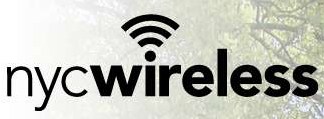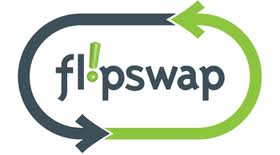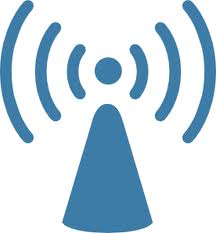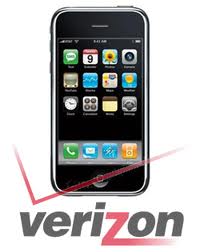 NY City Council members are reviewing an application by Time Warner Cable and Cablevision to offer Wi-Fi services in 32 New York-area parks… for a fee that could bring the companies as much as $10 million dollars a year in new revenue.
NY City Council members are reviewing an application by Time Warner Cable and Cablevision to offer Wi-Fi services in 32 New York-area parks… for a fee that could bring the companies as much as $10 million dollars a year in new revenue.
The controversial proposal would frustrate efforts by the nonprofit group NYCWireless to find free Wi-Fi providers to deliver service in New York’s public parks.
In September, the city of New York renewed franchises for both Cablevision and Time Warner Cable that included a commitment to spend $10 million to install Wi-Fi service in area parks. But nobody said the companies had to provide the service for free.
Instead, users will only get free samples — up to three ten-minute sessions per month. Additional time on the network will cost 99 cents per day. Cable customers will get unlimited access for free.
Dana Spiegel, executive director of the nonprofit NYCWireless, says handing over the wireless space in public parks to private fee-based providers is “absolutely unconscionable.”
City council members don’t have a final say over the deal — a state commission does — but intends to investigate the deal and its fairness to New York residents.
Verizon FiOS has a growing presence in New York City, and those customers would be locked out of free Wi-Fi access on the proposed park network.
NYCWireless offered the council several reasons why relying on cable companies to deliver public park Wi-Fi was not a great deal:
First, the plan does not establish any form of “Free Public Wi-Fi”, an amenity of New York City parks since NYCwireless began our work, and one replicated by the Parks Department and many other organizations around the City. Free Public Wi-Fi Hotspots were a very significant recommendation of the Diamond Consulting “Broadband Needs Assessment Study,” and the “Free” part of these public hotspots are exactly the part of these amenities that make them so valuable and essential for local residents.
Make no mistake: DoITT’s plan establishes a $1 per day fee for internet service in parks. There may be a few free 10-minute blocks per month, and there may be ways to hide the $1 per day charge in a resident’s cable service internet bill, but with DoITT’s plan, NYC won’t have Free Wi-Fi. We’ll have $1 per day Wi-Fi, delivered to public spaces that are maintained by our tax dollars, paid to a couple of huge private corporations.
In fact, Cablevision and Time Warner Cable stand to make tens of millions of dollars per year providing this service. Central Park gets about 25m visitors per year, and if we ignore all other parks, and figure that fewer than half of those visitors buy one day of internet service per year, Time Warner Cable and Cablevision get paid $0.99 x 10 million visitors = $10,000,000.
Second, the industry standard for gaining access to such types of subscription service as are contemplated by DoITT and the cable companies requires that a prospective user of a fee-based Parks Hotspot will need to create an account and enter their billing information. This requires the submission of identity, address, and credit card information into a web form prior to gaining access to the hotspot. Essentially, by promoting this solution, DoITT is pushing NYC citizens and visitors to hand over deeply personal and secure information to a private organization over which neither the user nor DoITT has any control.
Contrast this to the way that NYCwireless offers free Wi-Fi to citizens: we do require registration of a user account so that we can track agreement to our Acceptable Usage Policy. However we require only a valid email address. No billing address, no credit card, no other identity information.
Personally, I am fearful of handing over such information to such private organizations, though I have in the past. But I am more fearful for the harm that will be done to those that depend more significantly upon Park Hotspots. How many city residents don’t have a credit card? How many children in playgrounds who couldn’t get a credit card even if they wanted to? Adults? How many city residents live in neighborhoods that are otherwise safe, but in which they would prefer not pulling out their wallet and a credit card just to get what should be Free Internet Access? How many city residents depend upon Free Wi-Fi because they live below the poverty line, and because they can’t afford or don’t want cable internet, cannot afford the $5 it would cost them to get internet access in a city park during the week?
Lastly, because of DoITT’s “whole package solution”, most NYC residents and visitors won’t see any Wi-Fi, for free or for fee, for years, since local organizations that would otherwise have sponsored the creation of a Free Public Wi-Fi Hotspot say “oh, well, the city is going to do this someday, so we won’t bother doing this now for our community.” If past experience is any predictor of future performance, it will be years before the first Paid Wi-Fi Hotspot is opened, and many more before many others are opened, if at all. Meanwhile, DoITT’s actions will have stopped in its tracks any plans for more hotspots that local organizations may be contemplating.
[flv width=”640″ height=”500″]http://www.phillipdampier.com/video/NY 1 Time Warner Cable Offers Free WiFi Hotspots For City Customers 3-26-10.flv[/flv]
NY1 reported on Time Warner Cable’s expanded Wi-Fi hotspots in New York in this story from last March. (1 minute)
 Select smartphone customers will soon be able to connect multiple devices from their smartphone – via Wi-Fi – with AT&T’s new Mobile Hotspot application. Starting Feb. 13, customers bundling the Hotspot application with the AT&T Data Pro plan will get up to 4GB of data for $45 per month.
Select smartphone customers will soon be able to connect multiple devices from their smartphone – via Wi-Fi – with AT&T’s new Mobile Hotspot application. Starting Feb. 13, customers bundling the Hotspot application with the AT&T Data Pro plan will get up to 4GB of data for $45 per month. AT&T also announced a new trade-in program:
AT&T also announced a new trade-in program:

 Subscribe
Subscribe





